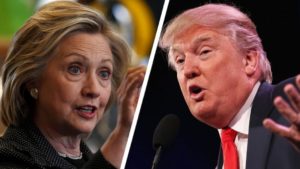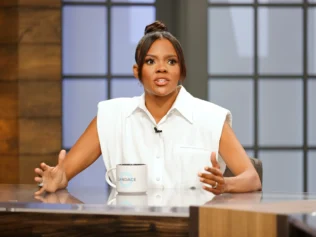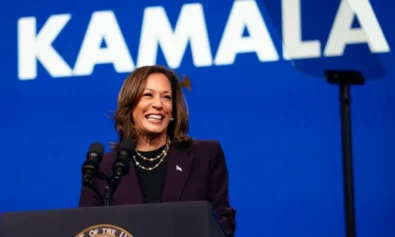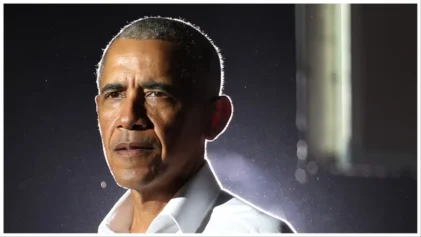
The election results were a white backlash over the first Black president and a multicultural America, and the desire to make America white again. The angry white man—disaffected and disgruntled–saw his country slipping from his fingers, and he had to do something about that. He had to live through a Black man as the leader of a nation built for the sole benefit of white people, the preservation of white interests.
When Black people make even the slightest modicum of progress, whites sound the alarm and decry the loss of their rights, their power. The country is multicultural, and this frightens many white folks. Already the majority of babies born in this nation are nonwhite children. What happens when the formerly enslaved take over the plantation? Will they treat whites with the same ruthlessness that was visited upon them? This election was a backlash against “political correctness,” which is merely code for treating Black people like human beings, better than animals, with dignity, respect and full rights. White America, on the whole, is tired of hearing about racism and the grievances of Black people, and certainly is unwilling to address them. So why not double down on white supremacy and put their heads in the sand?
White people are thoroughly incapable of self-reflection. You need deliverance from White supremacy. Desperately. pic.twitter.com/uRpo3BfQID
— Trudy (@thetrudz) November 9, 2016
No Steve, it was not “fallout from financial crisis”. African-Americans were hurt the most in 2007. It’s white supremacy. #ElectionNight pic.twitter.com/7Q1tulfO1A
— ChuckModi (@ChuckModi1) November 9, 2016
But above all: this is the desire of a vast number of whites to keep whites in the majority and in majority power in the US.
— Ed Baptist (@Ed_Baptist) November 9, 2016
Well. Looks like Ida B. Wells tried to hold it together but Susan B. Anthony said no, let it burn. pic.twitter.com/Is3HCVqu4E
— wikipedia brown (@eveewing) November 9, 2016
For his own part, Trump was uncompromising in his promotion of the white nationalist brand. He told us that he was all about upholding the interests of white folks—whether he has the capacity to actually deliver on his promises. The Klan supported him, the neo-Nazis and the other hate groups, and that did not deter the masses. If anything, it buoyed them. For uneducated working class whites, and even educated middle-class whites, do they really believe that Donald Trump– a man born in wealth, who never struggled and never looked out for the common folk, including common white folk– will be their savior? Chalk it up to unenlightened self-interest that has motivated white Americans, their impulse to throw Black people under the bus, even to their own economic detriment, in exchange for taking their place one rung above African-Americans in the racial caste system. Billy Bob may be poor, but at least he is not Black, he concludes. He knows this. He fought for a Confederacy that rendered his labor superfluous, and fought against labor rights and government programs if it meant Black people would also benefit.
And today, whites, feeling aggrieved, hurting economically and uncertain about their place in the world, need someone other than wealthy whites to blame for their problems. So they turn to ready-made scapegoats—the Blacks, the Mexicans, and the Muslims, the most vulnerable.
Ultimately, we must consider the role that Clinton—and Obama himself-may have played in this disaster. Hillary Clinton was the wrong candidate for the political season, a 20th century candidate for 21st century populist realities. Her role was status quo and tweaking at the edges, rather than change. For African-Americans, she was not Barack Obama, and that enthusiasm for the first Black president in 2008 and even 2012 was non-transferrable. Her “super-predators” remark concerning Black youth, and the legacy of her husband in accelerating the mass incarceration of Black bodies, was not lost on Black voters, and certainly must have dampened their enthusiasm.
Further, for all of his popularity, Obama flinched during his presidency, especially in the first term, when given the opportunity to be uncompromising in the furtherance of Black interests. One president lacks the power to do it alone, that is certain. But that bully pulpit is powerful, and he was reluctant to use it for fear of being labeled too Black, too strong, and displaying unacceptable favoritism to his base, the oppressed and disenfranchised. As a result, Black America remains at the bottom of the list by all standards. They were the hardest hit by the Great Recession, and experienced an historic loss of wealth from which they have not recovered.
Had the president advocated more forcefully for African-Americans out of the gate back in 2008, would that have translated into a more enthusiastic Black electorate to hand his successor victory in 2016? While we may never know the answer, we know this: What the Democrats tried to sell did not work. The Democratic base, never offered an unadulterated agenda for their interests, could not overcome an uncompromising appeal to white supremacy.


